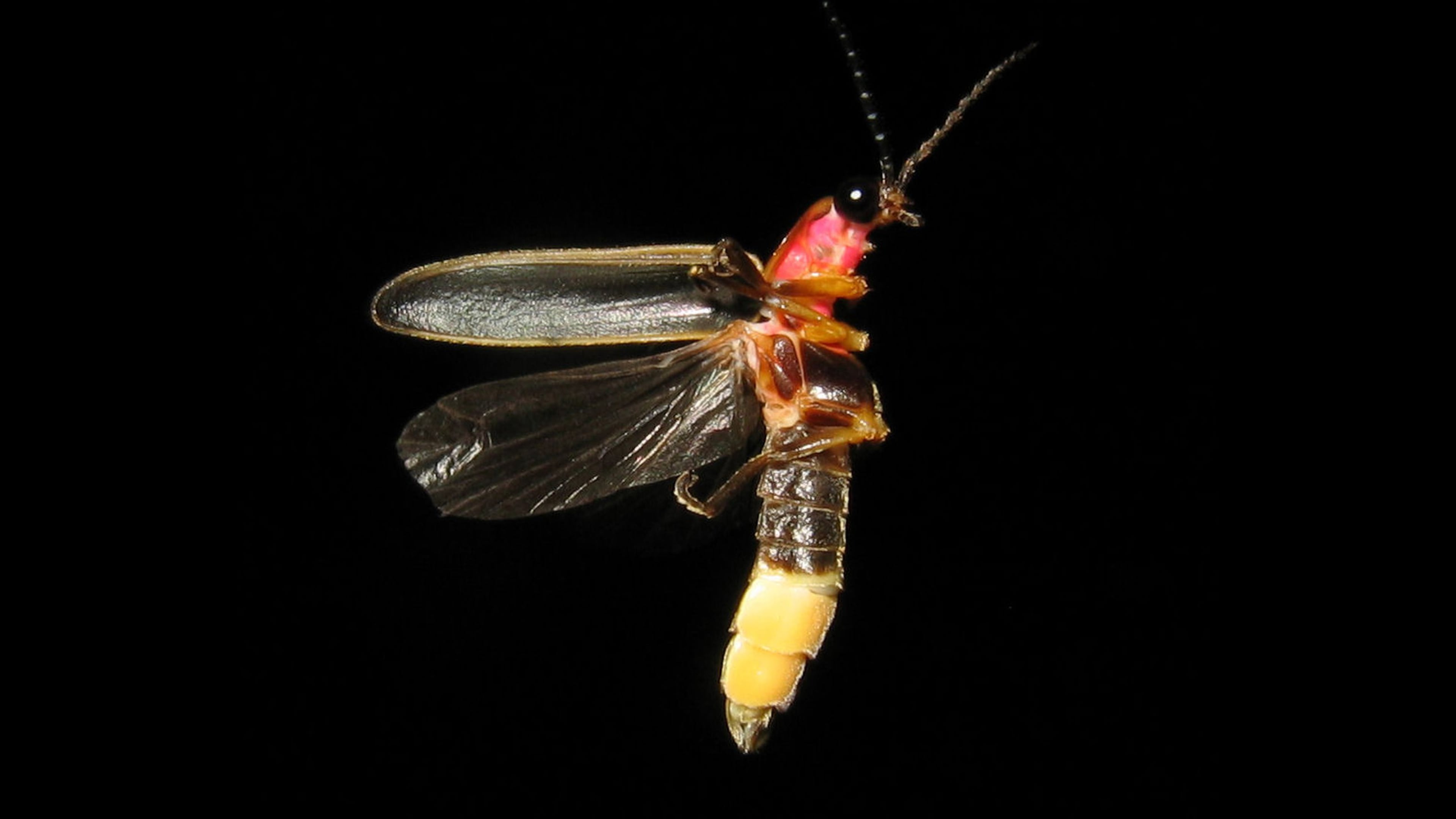Flashing fireflies spark joy and wonder in children

At my home in Decatur around dusk the other evening, I kept hearing laughter and squeals of delight from some kids outside. Then, my doorbell rang. Opening the door, I was greeted by the grinning faces of our next-door neighbors’ children, Micah, 11, Ella, 9, and Eden, 7.
Their dad, Daniel Ballard, who was with them, said they wanted to show me something — a small, plastic, see-through container holding some flashing insects. They were fireflies, 15 of them, which the Ballards had just caught in their yard and neighboring yards.
In was a heartening sight. It immediately triggered warm memories of my own long-ago childhood when my siblings and I spent hours running around our yard and garden, chasing flickering fireflies as darkness set in. The ones we caught were deposited in a Mason jar with holes punched in the lid to let the insects breathe.
We always released them after a couple of hours — as the Ballards did the other night — and watched them flit away.
In my mind, flickering fireflies — or lightning bugs — are the essence of a Southern summer night. (Summer begins at 5:44 p.m. Saturday, June 20, the longest day of the year.) There’s something relaxing and reassuring in watching the nightly show of tiny, fairylike blinks.
But unfortunately, firefly populations are dwindling. I wonder if future generations will be able to experience the same joy and wonder of flashing fireflies as countless children have done in the past.
Three main factors are suspected in firefly decline: habitat loss, toxic chemicals (which tend to linger in moist environments where fireflies start their lives) and outdoor light pollution.
This season, though, firefly numbers seem to be slightly higher than in several years, which may explain why the Ballard kids were able to catch 15 in a relatively short time. Whether it’s a sign of a firefly rebound, no one knows, but at least I’m grateful that there are a few more around this season.
IN THE SKY: From David Dundee, Tellus Science Museum astronomer: The moon will be new Saturday night. Mercury and Venus are low in the west just after dark and set less than an hour later. Mars rises in the east about four hours before sunrise. Jupiter and Saturn rise in the east just before midnight.

